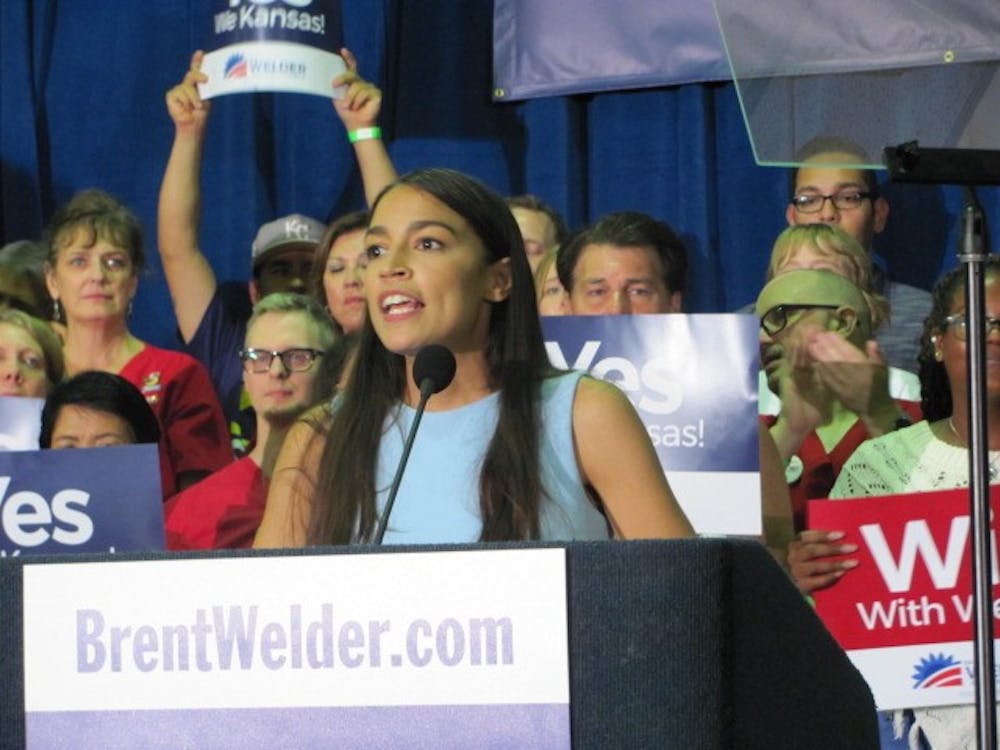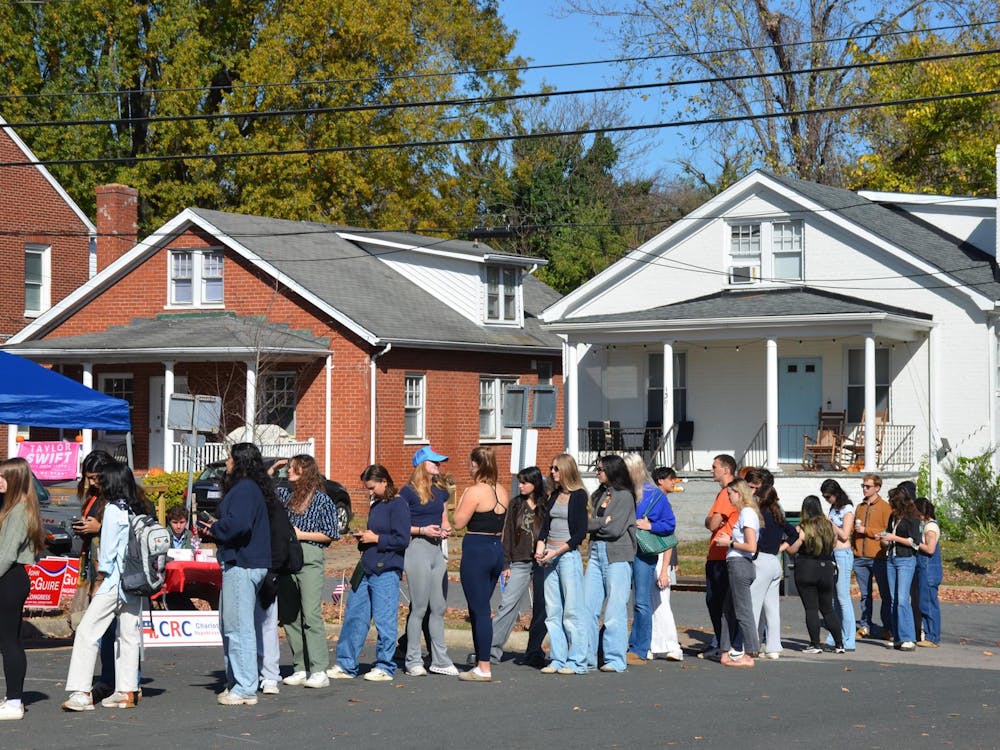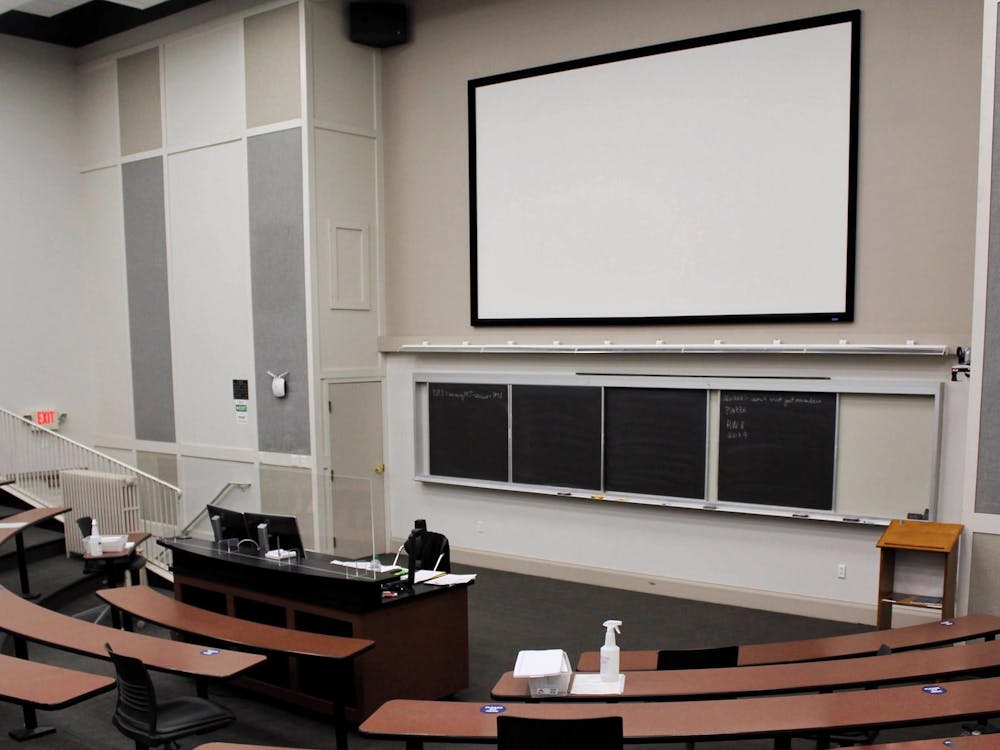Having defeated Joe Crowley, the fourth-ranking member of the House Democrats in June, Bronx-native and democratic socialist Alexandria Ocasio-Cortez launched into the national limelight as a de facto agenda setter of the Democratic Party. Among her first political crusades is demanding a necessary response to impending climate disaster. A recent UN Intergovernmental Panel on Climate Change report suggested we have about 12 years to stave off man-made climate catastrophe, a feat which would potentially require a massive overhauling of the American economy. Thankfully, Ocasio-Cortez seems to be approaching a viable solution.
The proposal known as the Green New Deal not only lays a foundation for what could be a meaningful response to climate change but in doing so, offers an alternative to capitalist logic of assuming substantial trade-offs. It correctly points out that the choice between jobs and climate apocalypse is a false one.
Climate change does not have a dubious, mysterious cause — the infinite consumption of capitalism and ensuing endless greed has allowed 100 companies to contribute the majority of emissions in the world. What else could we expect from a system designed to maximize profit over everything else?
Proponents of capitalism will say that deforestation or oil spills are just the cost of being the wealthiest nation in the world. Or they will say that we can’t have green energy without damaging our economy. It’s a line of reasoning deriving from the logic that the resources we have to respond to problems are so finite we have to make substantial trade-offs. In short, capitalism offers false choices, often to the detriment of the most vulnerable.
What happens when climate change wreaks havoc and we let these false choices dominate is nothing short of a continued disaster. In 2017, Hurricane Maria decimated Puerto Rico, leaving many areas without power months. In the context of both the hurricane and mounting debts, neoliberals seized on this tragedy to call for the privatization of PREPA, the Puerto Rican energy company, and that was just the beginning. In the midst of disaster, with many families leaving, over a hundred public schools were closed and in the process the island decided to essentially gut these schools in favor of privately run charter schools. Furthermore, an economic crisis and subsequent predatory debt restructuring, which was only worsened by the hurricane, may hamper the ability of the government to strengthen its public institutions, opening the way for even more privatization. Puerto Rico was presented with the false choice that it could rebuild by selling itself indefinitely, when its debt should have been forgiven and its aid package could have been far larger. We didn’t lack the resources — we lacked the willingness to offer an alternative to capitalist exploitation.
The Green New Deal has the potential to counteract this logic of false-choices. It sets 100 percent reduction in emissions within 10 years of passage as its goal, coupled with a federal jobs guarantee. Additionally, one of the most promising aspects of the plan is an emphasis on a “just transition” for all communities, which if done well would prioritize those most marginalized by our current economic system and the environmental impacts of it. The Climate Justice Alliance, a conglomerate of 68 local organizations around the country, notes the importance of a just transition, while highlighting that the Green New Deal can be successful by taking directions from the grassroots.
The just transition aspect of the Green New Deal is crucial because it gives historically ignored communities democratic control of resources and wealth to reimagine their communities in an environmentally sustainable way. The intent to ensure “federal and other investment will be equitably distributed to historically impoverished, low income, deindustrialized or other marginalized communities,” shows how policy can be explicit in it’s goals of striving for historical justice. The intersection of an economic program focused on jobs with a firm commitment to protecting the world from climate disaster is the beginning of a reimagining of the American economy and what could be accomplished.
The key to the Green New Deal is that it rejects capitalist logic by proposing that we don’t actually have to choose between good jobs and averting climate change. Nor do we have to choose between ignoring marginalized communities, and having universal programs like a jobs guarantee. Instead, unapologetic, broad governmental programs can offer remedies to multiple problems at once by uniting people rather than assuming someone must lose in order for a problem to be solved.
Politically, it seems like offering true, broad programs to major issues like climate change is popular as well. Recent polling suggests that the Green New Deal is immensely popular. Some 80 percent of people support the policy according to a recent survey, including 64 percent of Republicans. Even without taking the poll as inscrutable evidence of its popularity, it strongly suggests that proposing broad, progressive policies that ignore the false choices of capitalism are keys to uniting often opposing constituencies.
What Ocasio-Cortez understands that scares capitalists everywhere is that it isn’t a choice between well-paid workers and more immigration, or stopping climate change and growing the economy. The real choice is between allowing the wealthiest few to reap the resources of our country for profit, and building a society that can effectively respond to the challenges, environmental and others, we face.
Jake Wartel is an Opinion Columnist for The Cavalier Daily. He can be reached at opinion@cavalierdaily.com.





